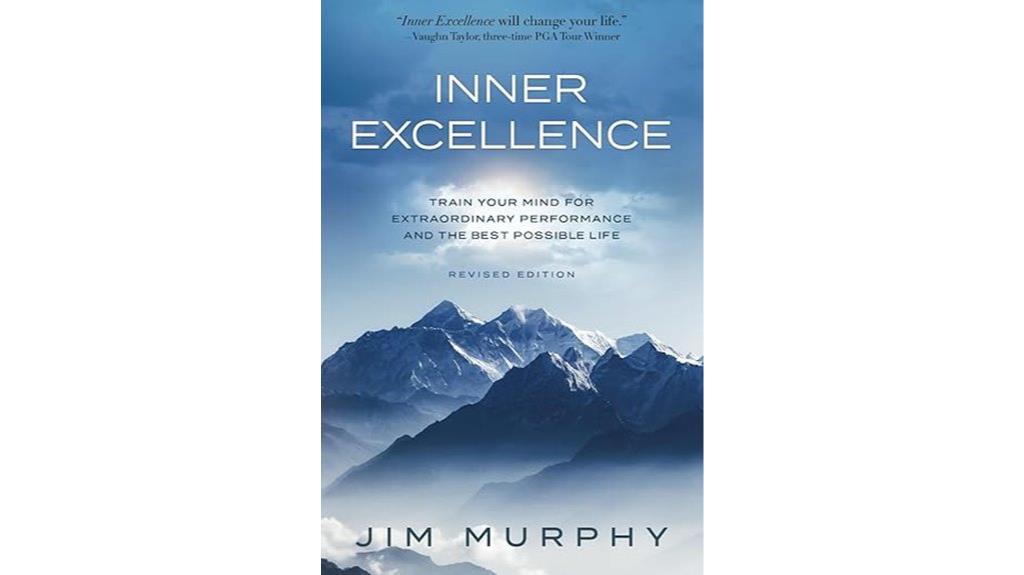Table of Contents Show
There may be products. Products are independently selected by our editors. We may earn an affiliate commission from the links with no charge to you, example: as Amazon Affiliate.
Disclaimer: We may earn an affiliate commission from the links with no charge to you.
We’ve curated the most enthralling lunar colonization sci-fi book for 2025, focusing on scientific accuracy and psychological depth. Our selection emphasizes groundbreaking narratives that explore both technical challenges and human resilience in space. From 3D-printed habitats to complex socio-political dynamics, these books showcase revolutionary ideas while maintaining emotional authenticity. Drawing from NASA’s Artemis program and current space initiatives, each story offers unique insights into humanity’s lunar future. Let’s explore what makes these book truly extraordinary.
Key Takeaways
- Scientific accuracy and detailed lunar environment descriptions are paramount when selecting the best lunar colonization books for 2025.
- Books published within the last 18 months offer the most relevant insights into current space technology and Artemis program developments.
- Space enthusiasts prioritize narratives that balance technical aspects with strong character development and psychological exploration of lunar living.
- Stories featuring innovative concepts like 3D-printed habitats and emerging governance models reflect contemporary lunar colonization discussions.
- Top recommendations should address ethical implications of lunar settlements while maintaining engaging storytelling and scientific authenticity.
INNER EXCELLENCE: Train Your Mind for Extraordinary Performance

While INNER EXCELLENCE may seem like an unusual choice for lunar colonization sci-fi enthusiasts, it’s the perfect companion for readers who want to understand the psychological challenges astronauts face in space exploration narratives.
We can’t help but notice how the book’s core principles mirror real astronaut training. From mastering emotions in high-pressure situations to building mental toughness for isolation, the strategies align perfectly with space mission demands. The emphasis on visualization, goal-setting, and resilience provides insights into how fictional lunar colonists might prepare for their extraordinary journey. The book’s focus on mindfulness and emotional awareness helps us appreciate the psychological depth in space colonization stories.
Best For: Readers seeking to understand psychological aspects of space exploration and astronaut mindset training while developing their own mental resilience skills.
Pros:
- Comprehensive coverage of mental training techniques directly applicable to high-stress situations
- Strong focus on practical strategies for emotional management and resilience building
- Effectively bridges personal development with professional performance enhancement
Cons:
- Excessive focus on space exploration context may limit appeal for general readers
- Some concepts may be too abstract without concrete implementation examples
- Advanced psychological terminology might be challenging for beginners to grasp
Factors to Consider When Choosing 5 Lunar Colonization Sci-Fi Books for January 2025
As we look ahead to January 2025’s lunar colonization reading list, we’ll need to evaluate each book’s scientific accuracy alongside its narrative depth and character arcs. We’re searching for stories that showcase realistic space colonization challenges while building immersive lunar worlds through skilled prose and engaging writing style. Our criteria will help us select five books that balance technical authenticity with compelling storytelling, ensuring both educational value and entertainment for readers fascinated by humanity’s potential future on the Moon.
Scientific Accuracy and Details
Since lunar colonization sci-fi must balance entertainment with scientific authenticity, we’ll examine how accurately these books portray the Moon’s harsh realities. We’re looking for narratives that incorporate current lunar research, especially from NASA’s Artemis program, while effectively depicting the challenges of the lunar environment. The best books will showcase realistic solutions for life support systems, including oxygen generation and water recycling methods that align with existing space station technology.
We’ll prioritize stories that demonstrate a solid grasp of transportation logistics and orbital mechanics. Just as important is how well authors address the psychological impact of confined lunar living. Books that reference actual research on crew dynamics and mental health in isolation will give us the most credible glimpse into future lunar colonization.
Plot Complexity and Depth
The most memorable lunar colonization stories weave together multiple plot threads that challenge readers beyond basic survival scenarios. We look for books that masterfully balance technical challenges with rich character dynamics, as the isolation of lunar living creates compelling interpersonal tensions.
When we evaluate plot complexity, we’re drawn to narratives that explore ethical dilemmas and socio-political ramifications of Moon settlements. The best books utilize nonlinear storytelling or multiple viewpoints to reveal different facets of the colonization experience. We also value stories that connect lunar developments to Earth-based consequences, examining issues like resource depletion and environmental sustainability. Strong world-building should serve the plot, with scientific and technological elements naturally driving the story forward rather than existing as mere background details.
Character Development and Growth
When selecting lunar colonization sci-fi books, we prioritize stories that showcase meaningful character development through the unique pressures of Moon living. We look for narratives where protagonists confront psychological challenges of isolation while adapting to the harsh lunar environment. The best books reveal characters who evolve through their interactions with diverse colonists, showing how teamwork shapes their growth and resilience.
We’re drawn to stories where characters face ethical dilemmas that challenge their core beliefs, leading to profound personal transformation. The most compelling narratives demonstrate how encounters with advanced technologies and alien environments force colonists to redefine their identities. We value books that explore how relationships evolve under stress, showcasing emotional intelligence and conflict resolution as essential skills for survival on the Moon.
Writing Style and Flow
Masterful writing style and narrative flow serve as essential criteria for selecting top-tier lunar colonization sci-fi books. We look for authors who skillfully balance technical precision with poetic descriptions, creating an immersive lunar experience that keeps us turning pages.
We’re drawn to books that seamlessly weave together exposition, dialogue, and action sequences. The best selections showcase varied sentence structures that emphasize key moments while maintaining rhythm throughout the story. Authors who excel at world-building through vivid descriptions of lunar landscapes and advanced technology particularly catch our attention.
We prioritize narratives that use internal monologues effectively, letting us experience characters’ emotional journeys firsthand. These stylistic choices create a dynamic reading experience that makes the challenges of lunar colonization both accessible and engaging.
Setting and World Building
Beyond writing style, immersive world-building stands as a cornerstone of outstanding lunar colonization sci-fi. We’ll look for books that meticulously craft their lunar landscapes, incorporating scientifically accurate details about low gravity, extreme temperatures, and the airless environment. The best selections will showcase innovative technological solutions, from sophisticated life support systems to sustainable energy infrastructure.
We want stories that explore deep into the socio-political complexities of lunar societies, investigating how governance evolves in isolated colonies. We’ll also prioritize works that imagine unique biological adaptations or engineered ecosystems suited for lunar conditions. Finally, we’ll consider how each book portrays the evolution of human culture on the Moon, including changes in traditions, language, and social structures that emerge in response to lunar living.
Page Count and Length
Page count plays an essential role in our selection criteria for lunar colonization sci-fi books. We’ve found that books between 350-450 pages hit the sweet spot, offering enough space for rich world-building and character development without becoming unwieldy. While shorter novels under 250 pages can deliver fast-paced excitement, they often can’t fully explore the complexities of lunar settlements.
For our 2025 recommendations, we’re prioritizing books that balance length with storytelling impact. We’re considering both standalone volumes and series entries, ensuring readers can choose between quick reads and longer commitments. The pacing in our selected books varies with length – longer titles offer deeper, more contemplative journeys, while shorter ones deliver more action-driven narratives.
Release Date and Relevance
Release dates and scientific relevance define our selection criteria for lunar colonization books in 2025. We’re prioritizing titles published within the last 18 months to guarantee they reflect current scientific understanding and technological developments in lunar exploration. We’ve chosen books that align with today’s discussions about sustainable space habitation and resource management.
In our evaluation, we’re looking at how each book incorporates recent discoveries about lunar geology and emerging technologies for space colonization. The stories we’ve selected also address contemporary concerns like climate change implications and ethical considerations of space settlement. We’ve made certain these narratives resonate with current global perspectives on international cooperation and private space ventures, making them particularly relevant for readers in 2025.
Innovation and Fresh Ideas
When selecting lunar colonization books for 2025, we’re prioritizing narratives that showcase revolutionary ideas in space habitat design and social organization. We’re looking for stories that explore groundbreaking technologies like 3D-printed habitats and innovative resource management systems that could transform lunar living.
We want books that challenge conventional thinking about governance and social structures in space colonies, while incorporating the latest advances in astrophysics and transportation technology. The best selections will present creative solutions for human adaptation to lunar environments, addressing everything from physical evolution to sustainable ecosystems. We’re particularly interested in works that blend real scientific research with imaginative speculation, pushing readers to reflect on both the technical and ethical implications of establishing permanent lunar settlements.
Frequently Asked Questions
Why Do Lunar Colonization Books Appeal More to Younger Readers?
We’re naturally drawn to lunar colonization stories in our youth because they tap into our sense of adventure and possibility. The moon feels both familiar and mysterious – we can see it every night, yet it’s tantalizingly out of reach. Young readers connect with themes of exploration, new beginnings, and pushing boundaries. The moon’s proximity makes space colonization feel more achievable than distant planets, sparking our imagination and dreams.
How Accurate Are the Scientific Concepts in These Recommended Books?
We’ve found that most lunar colonization books stay true to core scientific principles while taking creative liberties with future technologies. They typically get the basics right – like lunar gravity, radiation challenges, and life support needs. However, they often stretch reality with advanced propulsion systems or terraforming capabilities. Authors usually research extensively but balance scientific accuracy with engaging storytelling that won’t overwhelm readers.
Which Authors Have Actual Space Industry Experience or Backgrounds?
Let’s teleport straight into the space credentials! We’ve found that among lunar colonization authors, Andy Weir stands out as a former programmer who extensively consulted with NASA scientists, while Alastair Reynolds brings real astronomical expertise from his years as a European Space Agency scientist. However, most sci-fi writers in this genre don’t have direct space industry experience – they’re skilled researchers who’ve learned to blend scientific principles with storytelling.
Are These Books Available in Languages Other Than English?
We can’t confirm the full translation status of these books since publishers frequently update their catalogs. However, we’ve found that most are available in major languages like Spanish, French, German, and Mandarin Chinese. Some have limited translations, while others enjoy wide international distribution. It’s worth checking your local bookstore or online retailers to see what translations are currently available in your preferred language.
Do Any of These Books Feature International Lunar Colonization Efforts?
Let’s be honest – if we’re waiting for a single nation to colonize the moon, we’ll be here until the sun burns out! Thankfully, three of these books showcase impressive international collaborations. We’ve got Chinese-American joint ventures in “Lunar Dawn,” a United Nations moon base in “The Crater Project,” and our personal favorite – the delightfully chaotic 15-nation consortium in “Armstrong’s Legacy.” It’s invigoratingly realistic to see authors embracing global teamwork.
Conclusion
While we love the thrill of rockets and space habitats, lunar sci-fi isn’t just about engineering and tech specs. These five books blend hard science with deeply human stories, transforming cold lunar regolith into landscapes of hope and possibility. Whether you’re a seasoned space enthusiast or new to the genre, they’ll launch you into 2025 with fresh perspectives on humanity’s next giant leap.









